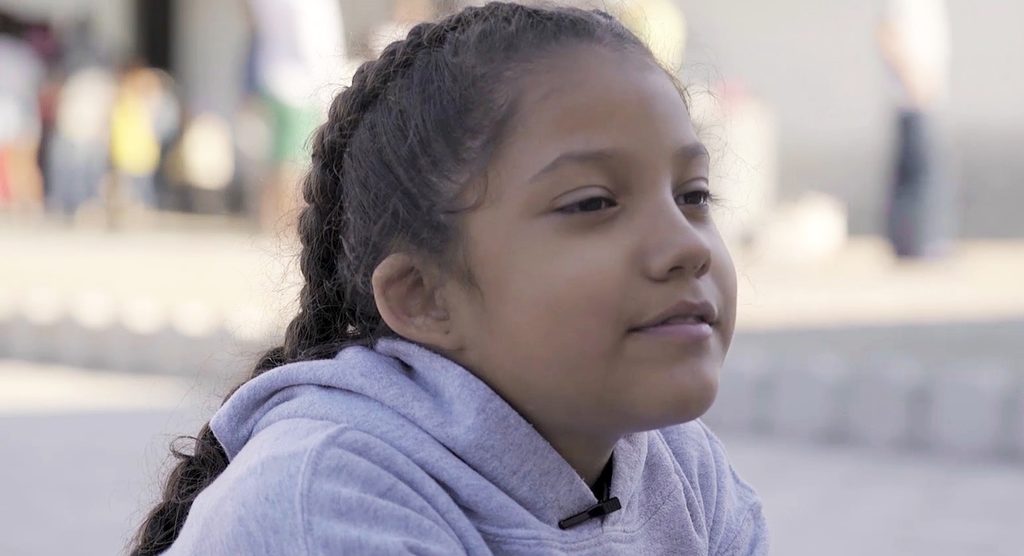A human crisis: Refugee hotspots around the world
We are witnessing the highest levels of human displacement in history. Hear from people in the refugee hotspots around the world.
Over 7.1 million people have left Venezuela.
The number of refugees and migrants is expected to increase to 8 million.
The deteriorating living conditions inside Venezuela are forcing thousands of people to leave the country every day.
Most of the refugees and migrants are residing in Colombia, Peru and Ecuador. Children and adolescents make up 25% of those who have fled Venezuela, with girls among the most vulnerable.

This report presents the experiences, voices, challenges and opportunities of Venezuelan refugee and migrant girls and adolescent girls in Colombia, Ecuador and Peru, from a feminist, intersectional and human rights perspective.
Venezuela is facing the worst political, socio-economic and human rights crisis in its history. The fall of democratic institutions, the rule of law and an economic collapse mean people are unable to exercise their basic rights.
The country’s economy has plummeted since 2012, causing hyper-inflation. This means wages are generally not enough to live off, especially considering that 82% of Venezuelan households live in poverty, while 51% face extreme poverty.
In addition, there is a shortage of public services such as water, electricity and medical supplies, including contraception.
Economic conditions have translated into increased insecurity in the country which is already among the most dangerous in the world.
Over 200 people leave Venezuela every hour and many will not return even if the situation in the country improves.
There are currently 4.5 million migrants from Venezuela across the region, of which over 25% are children and adolescents, making it the second biggest source of displacement in the world after Syria.
The countries currently hosting the most migrants are Colombia (1.4 million), Peru (880,000) and Ecuador (330,000). However, the actual figures are likely to be higher as current data does not account for Venezuelans lacking migrant status or those who have entered other countries illegally.
Venezuelans continue to arrive in neighbouring countries with very few resources and urgent needs for shelter, protection nutrition and health support. However, countries in the region lack the infrastructure or funds to protect the rights of the migrants and offer them a long-term home.
Therefore, the crisis is having severe implications in the region for peoples’ human rights and it is expected that the situation will continue to deteriorate.
The situation for children and adolescents is critical and girls are among the worst affected. One in 3 children in Venezuela (around 3.2 million) are extremely vulnerable and require urgent humanitarian assistance.
Because of the migration crisis, over 800,000 have been separated from their parents, while thousands are at risk of statelessness. In addition, over half of the Venezuelan children that have left their country are no longer receiving an education.
Adolescent girls are particularly vulnerable, as they face specific risks due to their gender and age and they are often overlooked in humanitarian responses to crises. This means they lack access to essential services and are put at increased risk of abuse and exploitation due to harmful social norms and gender inequality.
Violence against Venezuelan girls and adolescents is escalating in Venezuela and across the region. Moreover, Venezuela faces a complete shortage of all contraception in some cities which has led to an increase in adolescent pregnancy by 65% since 2015, while almost 20% of maternal deaths in the country are associated with unsafe abortions.
In 2018, Plan International undertook a 1-year regional response in Colombia, Ecuador and Peru, focusing on children’s immediate needs. The strategy focused on child protection, economic empowerment, education and social cohesion.
Our activities have included:
– Provision of psychosocial support through child and adolescent-friendly spaces and shelter for the most vulnerable refugees and migrants
– Distribution of hygiene, clothing, food kits and lifesaving information
– Identification and referral of unaccompanied children to national authorities or partners
– Delivery of educational supplies.
Over 180,000 refugees and migrants, 55% of which are children and adolescents, from more than 50,000 families have benefited of our programmes.
A 4-year regional strategy will be implemented by 2020. This will provide long-term solutions and opportunities for children and their families across Venezuela, Colombia, Ecuador and Peru. This will include immediate humanitarian support, development and social cohesion to support migrants to integrate in their new homes.
Plan International is currently implementing a programme through local partners inside Venezuela, funded by the Humanitarian Aid Department of the European Commission (ECHO). Activities will focus on protection, education and water, sanitation and hygiene.